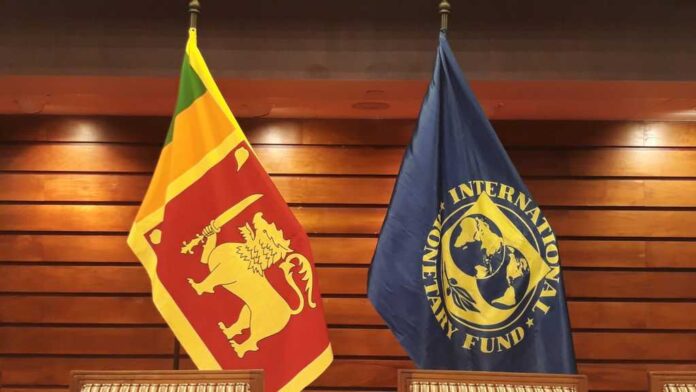By: Staff Writer
April 21, Colombo (LNW): Sri Lanka finds itself at a critical juncture as negotiations with international bondholders hit a deadlock, casting a shadow of uncertainty over the country’s economy and its pending review by the International Monetary Fund (IMF), experts cautioned.
On Tuesday, Sri Lanka announced its inability to reach an agreement with international bondholders regarding the restructuring of more than US$ 12 billion in debt, a prerequisite outlined by the IMF.
This setback, according to Colombo-based economist Talal Rafi, leaves Sri Lanka in a default status and exacerbates concerns over credit ratings and foreign investment.
Rafi emphasised the overarching impact of this uncertainty, stating, “The lack of clarity hampers strategic planning efforts across various sectors.”
Last March, the IMF’s board approved a US$ 2.9 billion bailout package for Sri Lanka under a 48-month Extended Fund Facility (EFF) arrangement, aimed at supporting the country’s economic policies and reforms.
Sri Lanka is presently undergoing its second review, awaiting board approval for a staff-level agreement reached in March of this year.
This programme marks the seventeenth engagement between Sri Lanka and the IMF since 1965.
The impasse in debt restructuring talks also jeopardises Sri Lanka’s forthcoming IMF review scheduled for June, as debt restructuring remains a pivotal condition for IMF board approval.
Rafi underlined the potential delays in the approval process, cautioning about the ramifications on Sri Lanka’s economic stability.
The IMF programme focuses on reinstating macro-economic stability, ensuring debt sustainability, bolstering financial stability, and advancing growth-oriented structural reforms.
Sri Lanka’s default on foreign debt in April 2022 triggered its worst economic crisis to date, with official data revealing modest growth in gross official foreign currency reserves to US$ 4.5 billion by February.
Against the backdrop of an impending presidential election, pressure mounts on the Sri Lankan government to expedite negotiations.
Concerns arise regarding the viability of hastily struck deals, with fears that unfavourable terms may exacerbate Sri Lanka’s debt burden and potentially lead to a second default.
Presidential elections in Sri Lanka occur every five years, with the next scheduled between September and October.
Despite the stalemate in negotiations, Sri Lanka’s national security adviser and chief of staff to the president, Sagala Ratnayaka, affirmed the government’s commitment to continued dialogue with all stakeholders.
Finance State Minister Shehan Semasinghe reassured this sentiment, expressing hopes for ongoing discussions with bondholders to achieve consensus before the IMF board’s deliberations on Sri Lanka’s EFF programme.
However, Sergi Lanau, director of global emerging markets strategy at Oxford Economics, cautioned against expectations of swift resolutions, citing similar delays in debt restructuring negotiations elsewhere.
Reflecting on the negotiation process, W.A. Wijewardena, a former central bank deputy governor, lamented the absence of trust and transparency between parties, underscoring the challenges in reaching a mutually beneficial agreement.


